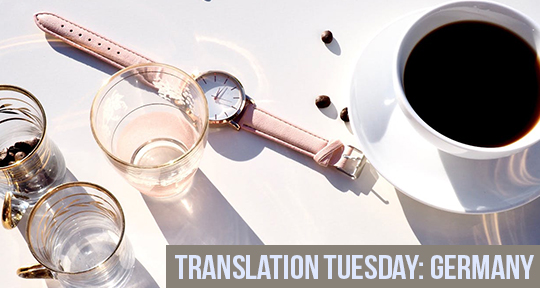“What do you do when you can’t manage to write a book? I’ll tell you: You make little notes, observations, anecdotes, sketch individual scenes. And then? You piece them together indiscriminately.” Thus wrote one irate critic of the Stain, the Jacket, the Rooms, the Pain—but they were wrong.
For this week’s Translation Tuesday, we bring you an excerpt from Wilhlem Genazino‘s mid-career masterpiece, translated from the German by Charlie N. Zaharoff. Here, the superficially aimless wanderings of our unnamed protagonist give way to a complex pattern of references and emotional resonances, his catalogue of observations accumulating into a vivid psychological portrait. What results is not a traditional dramatic novel, but rather, a powerful meditation on memory and loss. On the process of choosing an excerpt, the translator writes: “I had to make peace with the fact that I was doing a sort of violence to the text by snipping threads—visible or invisible—where they were not meant to be snipped. It felt worth it to give readers a sample of Genazino’s work, which with the exception of one novel remains untranslated into English.” Read on!
I step into the Rialto, the second-largest Italian café in town, and take a spot at the long counter, which reaches from the depths of the room up to the glass doors in front. I ask for an espresso and the telephone and dial Gesa’s number, although I’ll hardly say a word to her. The call is just a pretense. Gesa picks up. I say: I’m in the Rialto, do you want to hear Italy? She says: Yes. Then I am silent and hold the receiver towards the counter. From time to time, when she is sitting alone in her room, Gesa wants to be interrupted by the sounds of an Italian bar. She loves the quick setting of espresso dishes on the glass counter, the clacking of cups on the saucers, the laying of spoons beside the full cups, the snapping of the ice-cream scoop, the light sputter of the fruit press, the skating back-and-forth of metal ice-cream bowls on the counter, the pressure of freshly uncapped bottles, the opening and closing of heavy fridge doors, the clicking of ice cubes in slender glasses, the impact of a bottle opener on a marble slab, the hissing of the espresso machine, the dumping of coffee grounds into wooden trash bins. This is what she wants to hear: the sound of a more distant life that infiltrates her own for one minute, like a promise. After a while I ask: Is it good? Yes, it is good. Gesa laughs, and from her laugh you can tell that her life has rotated once around itself. I say: See you later. We hang up, I give back the telephone, pay and go.

